How tourism can protect rivers
“We’re not just about the travel; we’re about making a difference. Every time someone books one of our trips, they’re pitching in to help keep Balkan rivers untouched and teeming with life. Companies like ours, and our guests, have an important role in keeping rivers flowing freely, sustaining both local communities and the diverse wildlife that depend on them.”
Emma Heywood is the co-founder of our partner Undiscovered Balkans and she’s passionate about protecting the rivers and waterways of this region that her travellers use for kayaking, rafting, swimming and canyoning. From the Komarnica to the Tara, the Zeta and the Neretva, Emma and husband Ben get involved with hands-on campaigning and fundraising for river conservation, as well as educating their guests on the many threats faced by these precious freshwater habitats.
And they’re not alone. Many of our holidays take action to ensure that they, and our travellers, make a positive impact on the health of rivers.
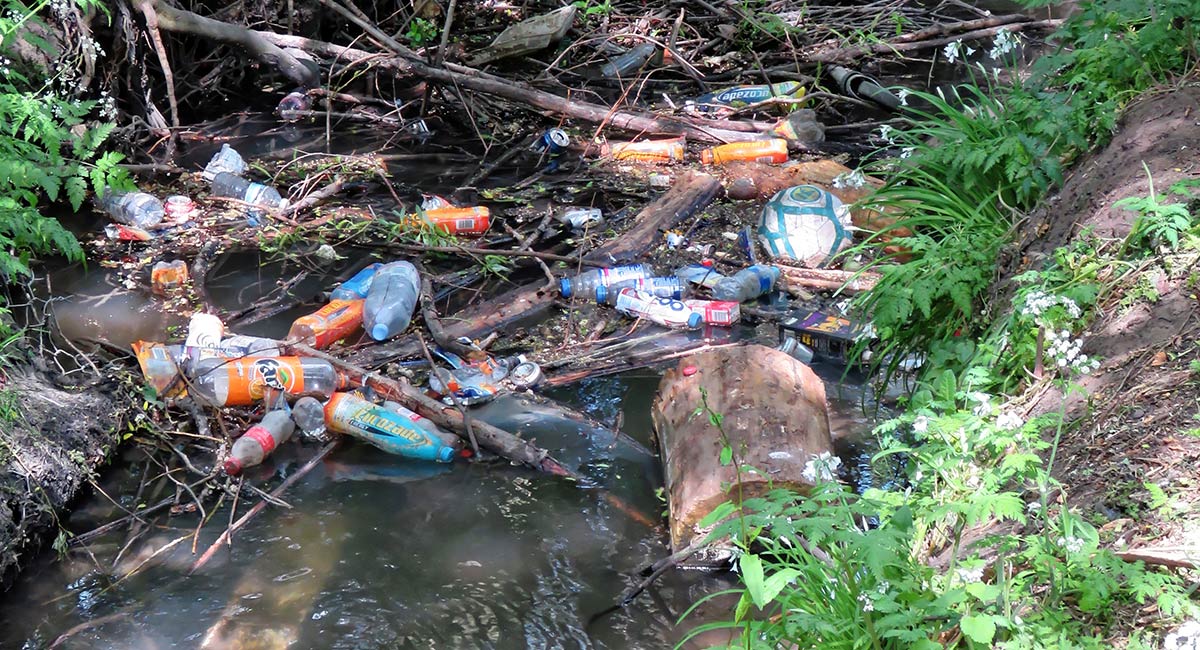
 NOT A SINGLE WATERWAY EITHER IN ENGLAND OR NORTHERN IRELAND IS IN A GOOD STATE OF HEALTH.
NOT A SINGLE WATERWAY EITHER IN ENGLAND OR NORTHERN IRELAND IS IN A GOOD STATE OF HEALTH.  The UK is becoming a nation of cold-water swimmers. Over seven million of us regularly enjoy a dip in rivers, lakes and sea. Here in Brighton, where the Responsible Travel team is based, sea swims have become a fixture of Christmas morning and New Year’s Day. A two-minute splash, hot chocolate on the beach in your de rigueur dry robe, and retire to the pub.
The UK is becoming a nation of cold-water swimmers. Over seven million of us regularly enjoy a dip in rivers, lakes and sea. Here in Brighton, where the Responsible Travel team is based, sea swims have become a fixture of Christmas morning and New Year’s Day. A two-minute splash, hot chocolate on the beach in your de rigueur dry robe, and retire to the pub.
But unfortunately, wild swimming in this country can be bad for you. A report from the environmental charity Rivers Trust found that not a single waterway either in England or Northern Ireland is in a good state of health, principally due to concentrations of toxic chemicals that are higher than safe limits. The cause? Run-off from agricultural and industrial activities, and the release of sewage – both treated and untreated – by water companies. The UK water and sewerage industry was privatised in 1989. The profits flow to overseas investment funds, while excrement flows down our rivers.
Of course, the UK is far from the only country with polluted waterways, and it even affects destinations that are marketed for their pristine nature. Forty-five percent of New Zealand’s rivers are considered unsuitable for swimming. In Costa Rica’s Tarcoles River, huge crocodiles have become conditioned to lazing in waters that are thick with human waste, heavy metals and agricultural runoff.
 JUST 10 RIVERS CARRY A QUARTER OF ALL THE PLASTIC WASTE THAT REACHES OUR OCEANS EVERY YEAR.
JUST 10 RIVERS CARRY A QUARTER OF ALL THE PLASTIC WASTE THAT REACHES OUR OCEANS EVERY YEAR.  Sungai Watch (Sungai means river in Malay) is a non-profit organisation in Bali that has installed over 100 temporary barriers across the island’s rivers to trap plastic waste and prevent it from reaching the ocean. In one 18-month period they collected 650 tonnes of litter.
Sungai Watch (Sungai means river in Malay) is a non-profit organisation in Bali that has installed over 100 temporary barriers across the island’s rivers to trap plastic waste and prevent it from reaching the ocean. In one 18-month period they collected 650 tonnes of litter.
Rivers globally are being choked with plastic, which presents a grave hazard to wildlife and the people that rely on the waterways. In Thailand, the Chao Phraya River is estimated to bear 4,000 tonnes of the stuff every year along its course before reaching the Gulf of Thailand. And in the UK, the Mersey was found to have a higher concentration of plastic than the notorious Great Pacific Garbage Patch.
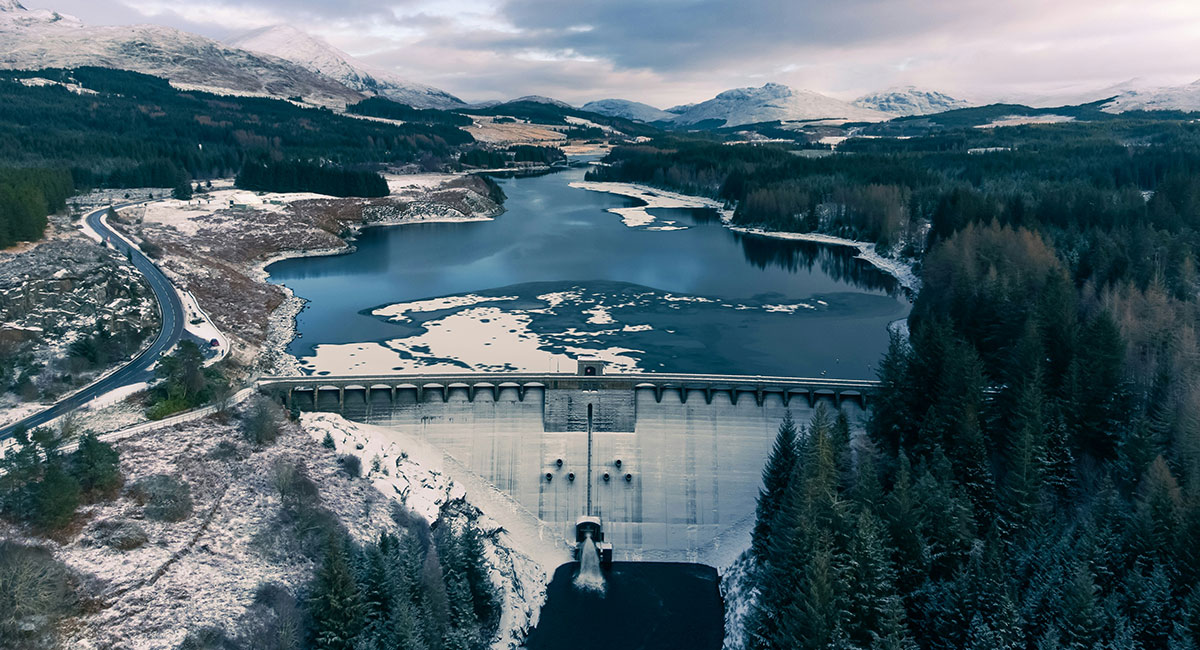
 EUROPE’S OBSTRUCTED RIVERS HAVE SUFFERED AN 80 PERCENT PLUNGE IN FRESHWATER BIODIVERSITY.
EUROPE’S OBSTRUCTED RIVERS HAVE SUFFERED AN 80 PERCENT PLUNGE IN FRESHWATER BIODIVERSITY.  The Neretva River, which flows for 225km from the Dinaric Alps to the Adriatic Sea through Bosnia and Herzegovina and Croatia, is one of the most biodiverse waterways in Europe, and one of the last spawning grounds for the endangered soft-mouth trout. The Neretva’s upper reaches are still free flowing, which is increasingly rare in Europe.
The Neretva River, which flows for 225km from the Dinaric Alps to the Adriatic Sea through Bosnia and Herzegovina and Croatia, is one of the most biodiverse waterways in Europe, and one of the last spawning grounds for the endangered soft-mouth trout. The Neretva’s upper reaches are still free flowing, which is increasingly rare in Europe.
But this state of bliss may not last much longer. More than 50 dams are planned for the Neretva, and over 3,000 for the wider Balkan Peninsula. Europe already has the most obstructed river landscape in the world, which has led to an 80 percent plunge in freshwater biodiversity, as well as a 55 percent decline in migratory fish populations. And it’s a similar story everywhere else.
Freshwater habitats are in a worse state than any other. Between 1970 and 2016, freshwater wildlife populations declined by 84 percent.
Less than a quarter of the world’s longest rivers flow uninterrupted to the ocean. And when they do get there, they arrive loaded with pollution. Responsible Travel works with our partners to promote holidays that don’t simply minimise their impact on nature, but actively benefit it. Our holidays also benefit communities, giving local people a stake in protecting the environment.
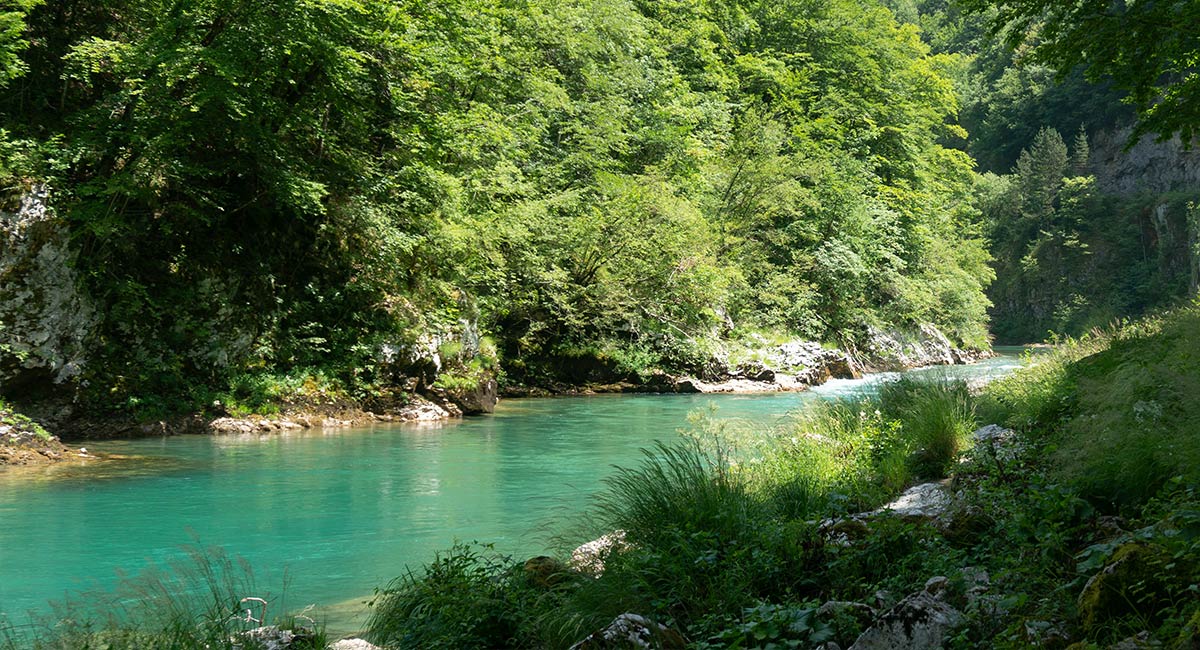
 WHAT IF, INSTEAD OF JUST TRYING TO ‘LEAVE NO TRACE’, WE LEFT A POSITIVE IMPACT ON THE PLACES WE VISITED? WHAT IF TOURISM CREATED A NET BENEFIT FOR THE NATURAL ENVIRONMENT?
WHAT IF, INSTEAD OF JUST TRYING TO ‘LEAVE NO TRACE’, WE LEFT A POSITIVE IMPACT ON THE PLACES WE VISITED? WHAT IF TOURISM CREATED A NET BENEFIT FOR THE NATURAL ENVIRONMENT? 
Although the Tara River in Montenegro is UNESCO-protected, it nonetheless suffers from illegal dumping of waste and other pollutants. Kayak Fest Tara is an event that brings together activists, local people, and adventure tourism businesses to celebrate nature and raise awareness of the plight of Balkan rivers.
“We help sponsor Kayak Fest,” says Emma, “and in recent years that’s gone towards an ‘eco run’ where kayakers removed trash from a 100km stretch of the river and bank.”
Our holidays also financially support a campaign to stop a hydropower dam being built on the Komarnica River, which would devastate a vibrant ecosystem that UNESCO has said merits protection as an extension to Durmitor National Park. On the Zeta River they have offered use of their kayaks free of charge to ecologist researchers seeking out kingfishers, European pond terrapins, yellow-bellied toads, green woodpeckers and many other species.
 THE BALKANS IS LIKE THE AMAZON OF EUROPE.
THE BALKANS IS LIKE THE AMAZON OF EUROPE.  “I participated in a mammal monitoring exercise and within a short distance of our camp, on the canyon floor intended to be flooded, we found wolf scat,” says Emma. “We see river turtles and other wildlife every time we kayak on the Zeta, and by bringing our groups we can demonstrate its value to locals.”
“I participated in a mammal monitoring exercise and within a short distance of our camp, on the canyon floor intended to be flooded, we found wolf scat,” says Emma. “We see river turtles and other wildlife every time we kayak on the Zeta, and by bringing our groups we can demonstrate its value to locals.”
“The Balkans is like the Amazon of Europe,” Emma continues. “This region is home to some of the continent’s last free-flowing rivers, and they come with crystal-clear water, rich wildlife, and a brilliant blue colour that is mesmerising. It would make you incredulous that anyone could dump a load of rubbish there, let alone pour concrete.”
For an example of how positive action can have long lasting impacts, you can look to the Vjosa River in Albania, which in 2023 became Europe’s first wild river national park. Not only has that stymied dam construction, but it has boosted ecotourism in the area. River tourism, such as our Balkans holidays, highlights the issues among travellers, motivates local people to protect their waterways, and raises funds to help them do so.
“With every trip booked, our guests are pitching in to help keep rivers like the Komarnica untouched and teeming with life,” says Emma.
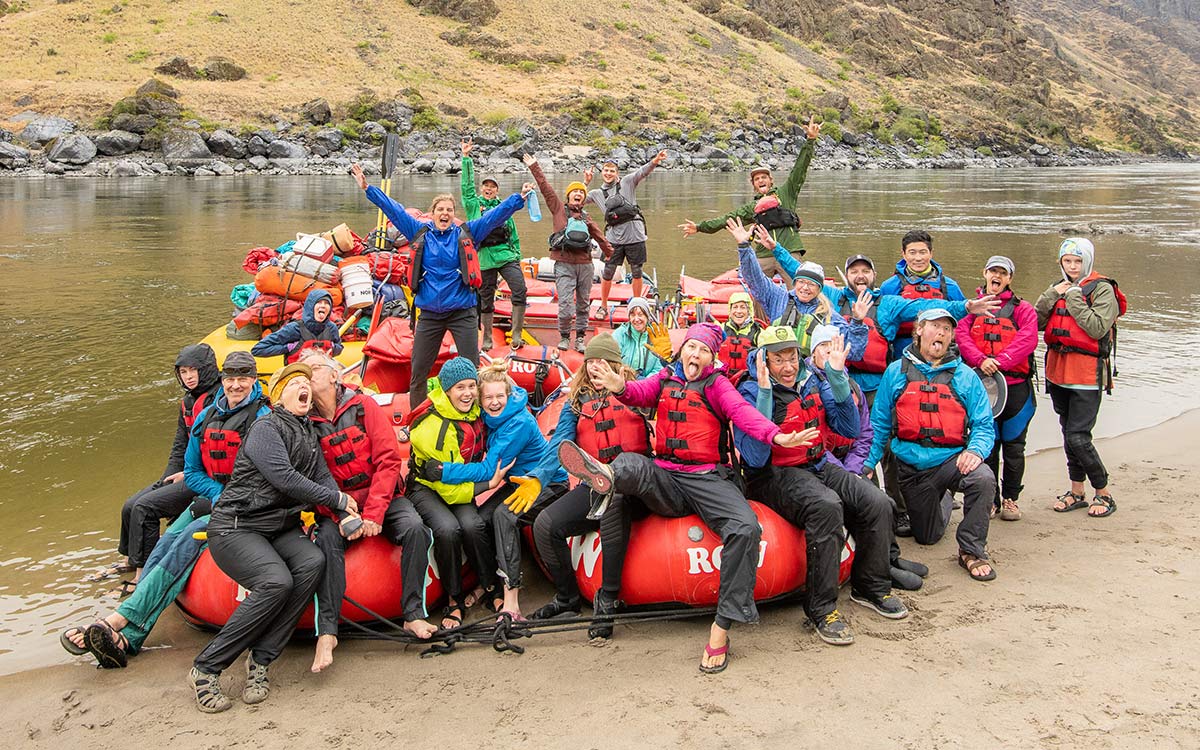
 RIVERS NEED CHAMPIONS TO TAKE CARE OF THEM.
RIVERS NEED CHAMPIONS TO TAKE CARE OF THEM. 
“Our trips – and, in fact, our lives – depend on natural environments that are healthy and sustainable,” says Peter. “We work to inspire our guests to become actively involved in preservation and conservation, and we ardently champion conservation efforts at the local, state, national, and international levels. We’re committed to fostering awareness, and we actively engage our guests in educational initiatives.”
Education is the responsibility of the river guides, who are exceptionally well-trained in current conservation issues. And, because they’re on the rivers daily, as well as showing you safely around the guides can also collect real-time information on water health for organisations such as the Waterkeeper Alliance and Save Our Wild Salmon.
 OUR TRIPS – AND, IN FACT, OUR LIVES – DEPEND ON NATURAL ENVIRONMENTS THAT ARE HEALTHY AND SUSTAINABLE.
OUR TRIPS – AND, IN FACT, OUR LIVES – DEPEND ON NATURAL ENVIRONMENTS THAT ARE HEALTHY AND SUSTAINABLE.  One of the most pressing issues for river health, and one that Peter and his team have long been concerned with, is dams.
One of the most pressing issues for river health, and one that Peter and his team have long been concerned with, is dams.
“It’s a question of energy production versus fish and wildlife, and recreation,” argues Peter. “The Pacific Northwest salmon in these rivers are on a slow path to extinction. Downstream on the lower Snake River there are four big dams that cause the death of the fry trying to get to sea. We have been active in campaigns to remove these dams for over 30 years.”
Dams and reservoirs drastically affect the ecology and physical state of a river. They change water temperatures and chemistry, they affect how the river flows, and the amount of silt it carries. It should come as no surprise that all of this negatively impacts on water quality, as well as biodiversity both in and around the river.
Besides working to keep rivers swimmable, fishable and drinkable, Peter and his team aim to instil a love of nature and a passion for stewardship in travellers. By getting out and about in the outdoors, learning about these places from knowledgeable guides, travellers are infused with a desire to get involved when they return home. “Rivers need champions to take care of them – and we do that.”
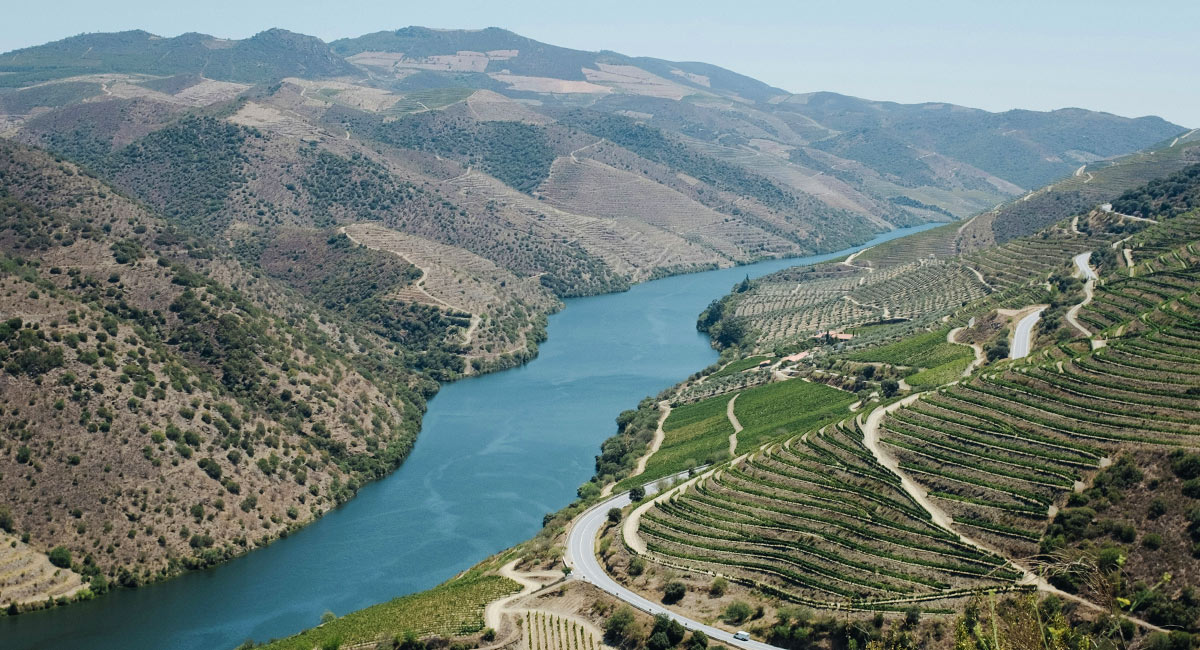
But fuel emissions are not the only problem on the Douro. When you paddle along it, you’ll regularly see plastic waste floating past. That’s why all their kayaks – those of the guides and the guests – are equipped with containers to collect it. “We practise clean, sustainable tourism, and by doing this hopefully we raise awareness among our guests too.”
It’s a lead-by-example approach echoed by Paulo Medeiros, founder of our partner Fun Activities, who organise many of our adventurous trips in the Azores, a Portuguese archipelago in the Atlantic Ocean. “Our holidays are water-based, so making sure the rivers and sea are clean is naturally important to us. We consider whether the locations we visit are over-used, and we aim to reduce the use of plastic in our operations as far as possible.” Every holiday helps their efforts.
Paulo and the team also regularly coordinate clean-ups of rivers, streams and coastal areas (which their guests are invited to join), on one occasion scooping up 34kg of waste. “Torrential rains and landslides can sometimes do significant damage to our rivers and trails,” says Paulo. “Since our team is made up of canyoning professionals, we can access some hard-to-reach places safely, and so with the support of the local council and help from other volunteers, we work hard to clean out the rivers of all the natural debris and help to recreate the trails passing through wilder areas.”
 EVERYTHING LEADS US TO WATER.
EVERYTHING LEADS US TO WATER.  In the Azores, river water quality suffers from agricultural processes. Trees are torn down to create pastures, which destabilises soil, allows more pollution to reach the water, and prevents nutrient-rich leaves from falling in. Excess phosphates from fertilisers and animal excrement damage waterways. Dairy farms require huge amounts of water, reducing flow elsewhere.
In the Azores, river water quality suffers from agricultural processes. Trees are torn down to create pastures, which destabilises soil, allows more pollution to reach the water, and prevents nutrient-rich leaves from falling in. Excess phosphates from fertilisers and animal excrement damage waterways. Dairy farms require huge amounts of water, reducing flow elsewhere.
Climate change is also a factor in this remote archipelago so exposed to the elements. Intense and constant periods of rain combined with the islands’ rugged terrain have in the past caused disasters that have destroyed lives and infrastructure.
“Because we live on islands, water has always been a subject of vital importance for the inhabitants of the Azores,” says Paulo. “It is my sincere opinion that tourism can, if well directed, help solve these problems. And we need to, because in truth our work and our lives are interconnected with nature. Everything leads us to water.”
Rivers around the world are under immense threat, and consequently so are the communities, the economies, and the biodiversity that depend on them. The need to protect our waterways is both profound and urgent. At Responsible Travel, we work with partners who are joining the fight against dams and polluters. Together we can show that responsible river tourism is a viable alternative to destructive practices.
Emma Heywood is the co-founder of our partner Undiscovered Balkans and she’s passionate about protecting the rivers and waterways of this region that her travellers use for kayaking, rafting, swimming and canyoning. From the Komarnica to the Tara, the Zeta and the Neretva, Emma and husband Ben get involved with hands-on campaigning and fundraising for river conservation, as well as educating their guests on the many threats faced by these precious freshwater habitats.
And they’re not alone. Many of our holidays take action to ensure that they, and our travellers, make a positive impact on the health of rivers.
Polluted waterways

Image credit: Acabashi
 NOT A SINGLE WATERWAY EITHER IN ENGLAND OR NORTHERN IRELAND IS IN A GOOD STATE OF HEALTH.
NOT A SINGLE WATERWAY EITHER IN ENGLAND OR NORTHERN IRELAND IS IN A GOOD STATE OF HEALTH. 
But unfortunately, wild swimming in this country can be bad for you. A report from the environmental charity Rivers Trust found that not a single waterway either in England or Northern Ireland is in a good state of health, principally due to concentrations of toxic chemicals that are higher than safe limits. The cause? Run-off from agricultural and industrial activities, and the release of sewage – both treated and untreated – by water companies. The UK water and sewerage industry was privatised in 1989. The profits flow to overseas investment funds, while excrement flows down our rivers.
Of course, the UK is far from the only country with polluted waterways, and it even affects destinations that are marketed for their pristine nature. Forty-five percent of New Zealand’s rivers are considered unsuitable for swimming. In Costa Rica’s Tarcoles River, huge crocodiles have become conditioned to lazing in waters that are thick with human waste, heavy metals and agricultural runoff.
 JUST 10 RIVERS CARRY A QUARTER OF ALL THE PLASTIC WASTE THAT REACHES OUR OCEANS EVERY YEAR.
JUST 10 RIVERS CARRY A QUARTER OF ALL THE PLASTIC WASTE THAT REACHES OUR OCEANS EVERY YEAR. 
Rivers globally are being choked with plastic, which presents a grave hazard to wildlife and the people that rely on the waterways. In Thailand, the Chao Phraya River is estimated to bear 4,000 tonnes of the stuff every year along its course before reaching the Gulf of Thailand. And in the UK, the Mersey was found to have a higher concentration of plastic than the notorious Great Pacific Garbage Patch.
A dam nuisance

 EUROPE’S OBSTRUCTED RIVERS HAVE SUFFERED AN 80 PERCENT PLUNGE IN FRESHWATER BIODIVERSITY.
EUROPE’S OBSTRUCTED RIVERS HAVE SUFFERED AN 80 PERCENT PLUNGE IN FRESHWATER BIODIVERSITY. 
But this state of bliss may not last much longer. More than 50 dams are planned for the Neretva, and over 3,000 for the wider Balkan Peninsula. Europe already has the most obstructed river landscape in the world, which has led to an 80 percent plunge in freshwater biodiversity, as well as a 55 percent decline in migratory fish populations. And it’s a similar story everywhere else.
Freshwater habitats are in a worse state than any other. Between 1970 and 2016, freshwater wildlife populations declined by 84 percent.
Less than a quarter of the world’s longest rivers flow uninterrupted to the ocean. And when they do get there, they arrive loaded with pollution. Responsible Travel works with our partners to promote holidays that don’t simply minimise their impact on nature, but actively benefit it. Our holidays also benefit communities, giving local people a stake in protecting the environment.
Holidays that help protect rivers

 WHAT IF, INSTEAD OF JUST TRYING TO ‘LEAVE NO TRACE’, WE LEFT A POSITIVE IMPACT ON THE PLACES WE VISITED? WHAT IF TOURISM CREATED A NET BENEFIT FOR THE NATURAL ENVIRONMENT?
WHAT IF, INSTEAD OF JUST TRYING TO ‘LEAVE NO TRACE’, WE LEFT A POSITIVE IMPACT ON THE PLACES WE VISITED? WHAT IF TOURISM CREATED A NET BENEFIT FOR THE NATURAL ENVIRONMENT? 
– Peter Grubb
The Balkans
“Our wild spaces are precious – worth fighting for.” Emma Heywood is heavily involved with protecting waterways in the Balkans, where she and husband Ben organise a range of water-based adventure holidays for Responsible Travel. For every booking, they make a financial donation to one of several environmental and community causes they support.Although the Tara River in Montenegro is UNESCO-protected, it nonetheless suffers from illegal dumping of waste and other pollutants. Kayak Fest Tara is an event that brings together activists, local people, and adventure tourism businesses to celebrate nature and raise awareness of the plight of Balkan rivers.
“We help sponsor Kayak Fest,” says Emma, “and in recent years that’s gone towards an ‘eco run’ where kayakers removed trash from a 100km stretch of the river and bank.”
Our holidays also financially support a campaign to stop a hydropower dam being built on the Komarnica River, which would devastate a vibrant ecosystem that UNESCO has said merits protection as an extension to Durmitor National Park. On the Zeta River they have offered use of their kayaks free of charge to ecologist researchers seeking out kingfishers, European pond terrapins, yellow-bellied toads, green woodpeckers and many other species.
 THE BALKANS IS LIKE THE AMAZON OF EUROPE.
THE BALKANS IS LIKE THE AMAZON OF EUROPE. 
“The Balkans is like the Amazon of Europe,” Emma continues. “This region is home to some of the continent’s last free-flowing rivers, and they come with crystal-clear water, rich wildlife, and a brilliant blue colour that is mesmerising. It would make you incredulous that anyone could dump a load of rubbish there, let alone pour concrete.”
For an example of how positive action can have long lasting impacts, you can look to the Vjosa River in Albania, which in 2023 became Europe’s first wild river national park. Not only has that stymied dam construction, but it has boosted ecotourism in the area. River tourism, such as our Balkans holidays, highlights the issues among travellers, motivates local people to protect their waterways, and raises funds to help them do so.
“With every trip booked, our guests are pitching in to help keep rivers like the Komarnica untouched and teeming with life,” says Emma.

 RIVERS NEED CHAMPIONS TO TAKE CARE OF THEM.
RIVERS NEED CHAMPIONS TO TAKE CARE OF THEM. 
USA
Over in the American Northwest, another family firm of conservation-minded tour operators is equally committed to protecting the rivers they ride day in, day out. Peter Grubb is the co-founder of our partner ROW Adventures, which organises our rafting and kayaking trips in Idaho, Oregon and Montana. Our rafting holidays in this region offer travellers the chance to make a charitable donation, which goes to the various environmental organisations and campaigns the company supports.“Our trips – and, in fact, our lives – depend on natural environments that are healthy and sustainable,” says Peter. “We work to inspire our guests to become actively involved in preservation and conservation, and we ardently champion conservation efforts at the local, state, national, and international levels. We’re committed to fostering awareness, and we actively engage our guests in educational initiatives.”
Education is the responsibility of the river guides, who are exceptionally well-trained in current conservation issues. And, because they’re on the rivers daily, as well as showing you safely around the guides can also collect real-time information on water health for organisations such as the Waterkeeper Alliance and Save Our Wild Salmon.
 OUR TRIPS – AND, IN FACT, OUR LIVES – DEPEND ON NATURAL ENVIRONMENTS THAT ARE HEALTHY AND SUSTAINABLE.
OUR TRIPS – AND, IN FACT, OUR LIVES – DEPEND ON NATURAL ENVIRONMENTS THAT ARE HEALTHY AND SUSTAINABLE. 
“It’s a question of energy production versus fish and wildlife, and recreation,” argues Peter. “The Pacific Northwest salmon in these rivers are on a slow path to extinction. Downstream on the lower Snake River there are four big dams that cause the death of the fry trying to get to sea. We have been active in campaigns to remove these dams for over 30 years.”
Dams and reservoirs drastically affect the ecology and physical state of a river. They change water temperatures and chemistry, they affect how the river flows, and the amount of silt it carries. It should come as no surprise that all of this negatively impacts on water quality, as well as biodiversity both in and around the river.
Besides working to keep rivers swimmable, fishable and drinkable, Peter and his team aim to instil a love of nature and a passion for stewardship in travellers. By getting out and about in the outdoors, learning about these places from knowledgeable guides, travellers are infused with a desire to get involved when they return home. “Rivers need champions to take care of them – and we do that.”

Portugal
Sérgio Lucena, team leader and guide at our partner 7 Rivers Expeditions, escorts small groups on kayaking trips along Portugal’s beautiful Douro River. “There are over 20 cruise ships sailing up and down a stretch of just 200km, so one for every 10 km, plus the small tourist boats that make day trips. That’s a huge pollution footprint for the river.”But fuel emissions are not the only problem on the Douro. When you paddle along it, you’ll regularly see plastic waste floating past. That’s why all their kayaks – those of the guides and the guests – are equipped with containers to collect it. “We practise clean, sustainable tourism, and by doing this hopefully we raise awareness among our guests too.”
It’s a lead-by-example approach echoed by Paulo Medeiros, founder of our partner Fun Activities, who organise many of our adventurous trips in the Azores, a Portuguese archipelago in the Atlantic Ocean. “Our holidays are water-based, so making sure the rivers and sea are clean is naturally important to us. We consider whether the locations we visit are over-used, and we aim to reduce the use of plastic in our operations as far as possible.” Every holiday helps their efforts.
Paulo and the team also regularly coordinate clean-ups of rivers, streams and coastal areas (which their guests are invited to join), on one occasion scooping up 34kg of waste. “Torrential rains and landslides can sometimes do significant damage to our rivers and trails,” says Paulo. “Since our team is made up of canyoning professionals, we can access some hard-to-reach places safely, and so with the support of the local council and help from other volunteers, we work hard to clean out the rivers of all the natural debris and help to recreate the trails passing through wilder areas.”
 EVERYTHING LEADS US TO WATER.
EVERYTHING LEADS US TO WATER. 
Climate change is also a factor in this remote archipelago so exposed to the elements. Intense and constant periods of rain combined with the islands’ rugged terrain have in the past caused disasters that have destroyed lives and infrastructure.
“Because we live on islands, water has always been a subject of vital importance for the inhabitants of the Azores,” says Paulo. “It is my sincere opinion that tourism can, if well directed, help solve these problems. And we need to, because in truth our work and our lives are interconnected with nature. Everything leads us to water.”
Rivers around the world are under immense threat, and consequently so are the communities, the economies, and the biodiversity that depend on them. The need to protect our waterways is both profound and urgent. At Responsible Travel, we work with partners who are joining the fight against dams and polluters. Together we can show that responsible river tourism is a viable alternative to destructive practices.




